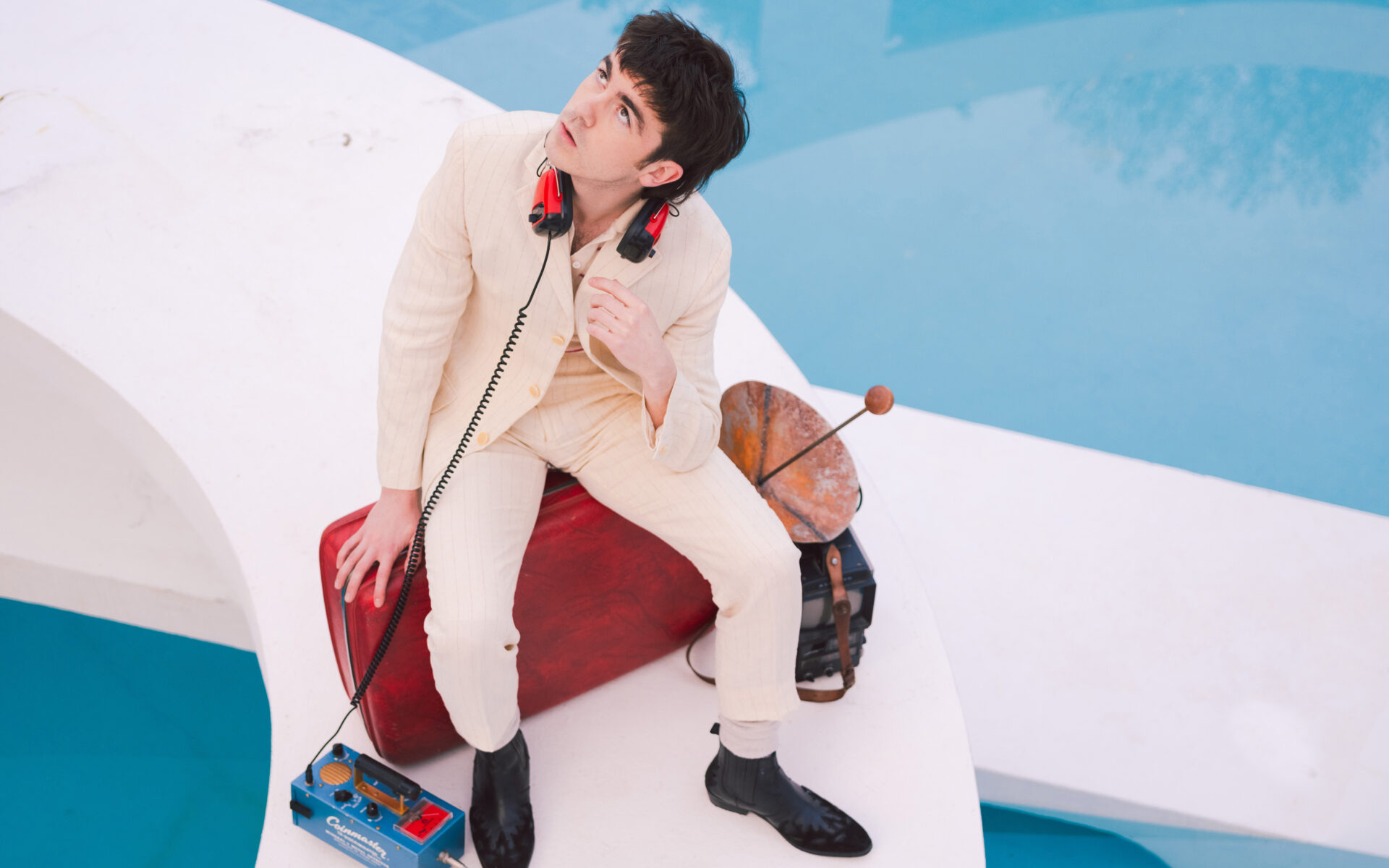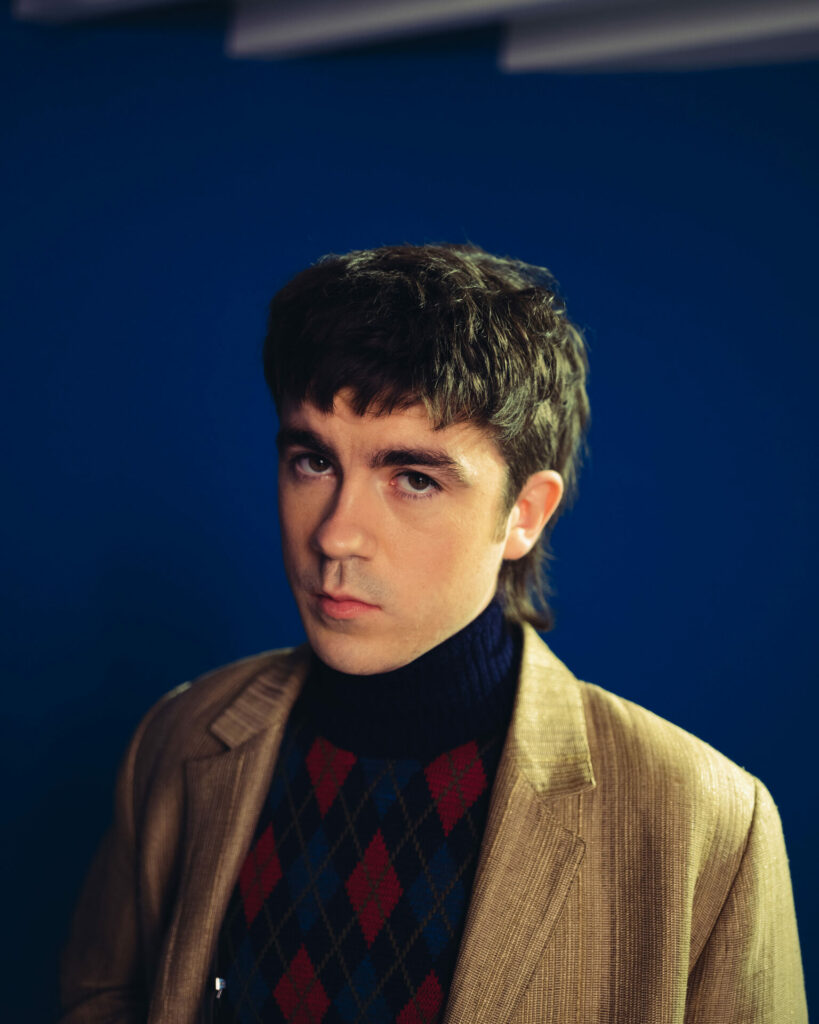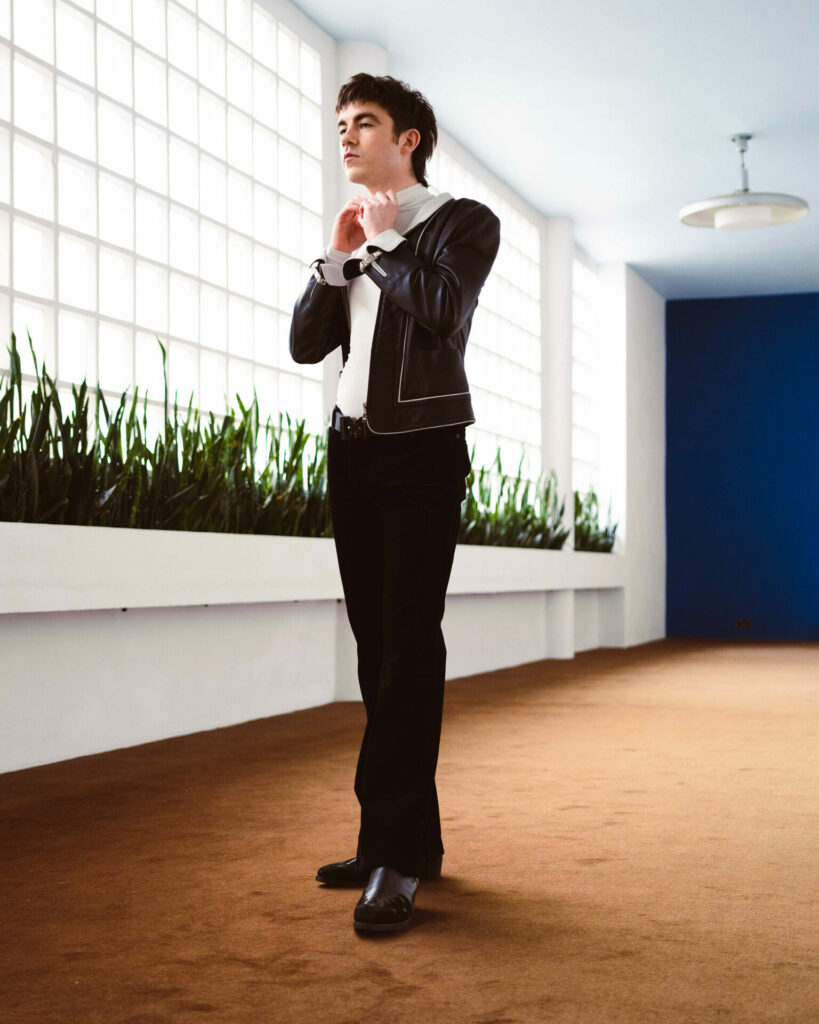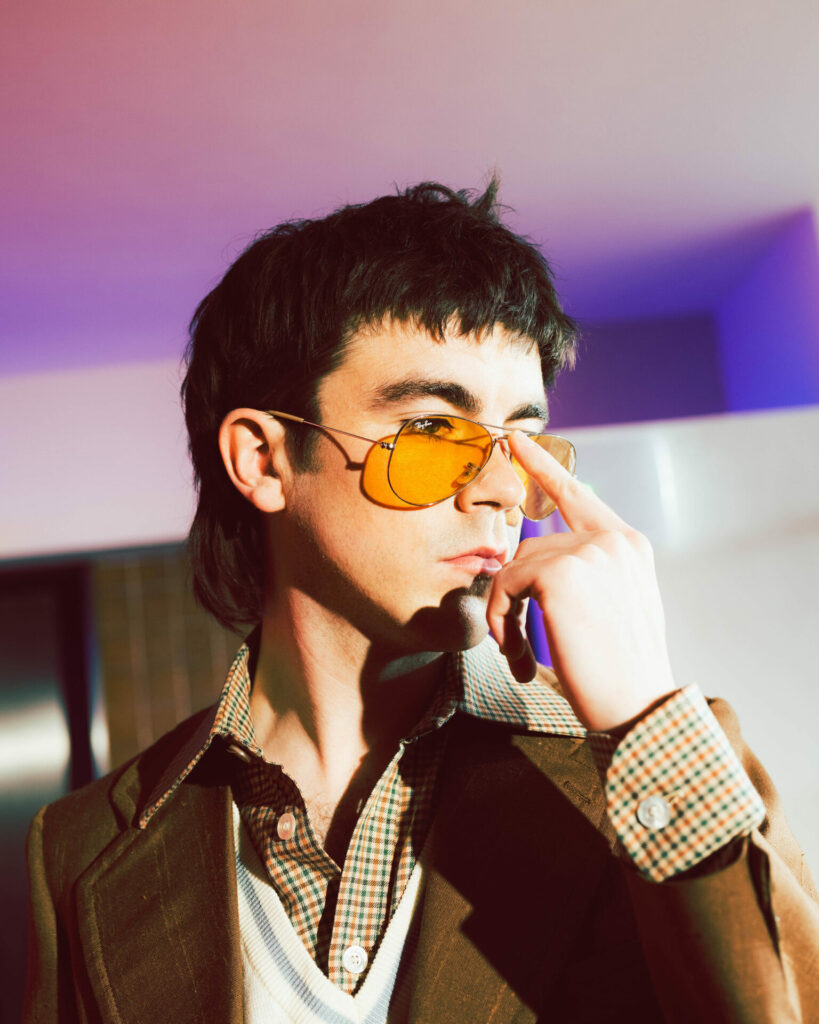Declan McKenna on letting loose and living it up in LA to create his sunny third album
The singer-songwriter discusses the more chilled vibe that defines his third album, the pressure on artists to engage with social media, and how he’s becoming the artist he always wanted to be
By Nick Reilly

Take one listen to Declan McKenna’s third album, What Happened to the Beach?, and you’ll notice the sunshine that permeates it. If 2020’s Zeros — released midway through the pandemic — saw him exploring the highs of ‘70s glam rock and psychedelia, there’s a more relaxed groove on this latest record by McKenna, now 25. The title track, for instance, skips along with all the laid-back energy of a day out at its eponymous location.
It’s a natural occurrence, he explains, given that vast chunks were recorded in the sun-soaked climes of Los Angeles. “It’s got that sense of sun and freedom that you might associate with LA.”
There he teamed up with producer Gianluca Buccellati, who has previously worked with Lana Del Rey and Arlo Parks, on her Mercury Prize-winning debut album, Collapsed in Sunbeams. It is with the help of Buccellati, as he reveals, that he’s created his freest album yet.
What’s changed for you between Zeros and this, your third album?
Well, we’re not expecting a pandemic for starters! I’ve got more control this time around, whereas the last [album] felt a bit like making the best out of the situation. We did one music video last time, just as things were getting weird, but then we went into full lockdown, and that was very intense. It was a strange time, and I’m just more excited now. There’s more excitement all round.
It’s quite a sunny record, isn’t it? Zeros leant heavily into elements of psychedelia, but this one feels quite laidback and languorous.
There are psychedelic elements, but it’s less traditional in how you hear it. The whole process has been less traditional, and it’s not alien now for records not to be made in proper studios, and I’ve leant into that. I think we tried to see what we could do by spending a bit more time on the recordings and getting perspective as we went along. The songs are more strange, and I love that there’s this weird, wonky edge to that. I’ve taken the spirit of how I like to make music at home and just made a record out of that. Luca [Buccellati] has really helped with that too. It’s perhaps a record that can be listened to in a more universal context. It doesn’t always demand your attention, which I really like. That’s where a lot of my favourite music falls at the moment.

You’ve said that the new album looks inward — is this you turning the camera on yourself?
To some extent, and there’s stuff that just feels like pure intuition. I do think some of the lyrics are almost word vomit because they discuss an emotional state, and I always think that’s quite a fun thing to do. There’s a more abstract touch and even a more introspective touch to the lyrics.
I almost feel like the album is a symbol of where I’ve got to as a person: it’s about relaxing and feeling more confident in the place I am and [having] the ability to understand myself a bit better. I really like ‘Nothing Works’ because it’s tongue-in-cheek but really takes on that idea of letting go and being yourself, which is brilliant. There’s definitely an element to the album that is more about where I’ve landed and becoming the artist that I want to be. And I think that’s true in life as well.
That’s a good thing. It’s all too easy to forget you were just 15 when you released ‘Brazil’ and won Glastonbury’s Emerging Talent Competition a year later.
I think I’ve been able to get a bit more perspective on it all now. I’ve been able to slow things down and figure out where I want to take things because, you know, I’ve taken so much on board about myself and making music. When you start out, you’re not actively choosing your path because you don’t know where this thing is going to take you. Whereas now, I’ve settled into myself, and this album has given me so much perspective on the different ways I can go on and make albums. I’ve just wound up in a really exciting position. I’ve got three albums under my belt, and I think I can take it anywhere now.
‘It’s an Act’ is an interesting song because it speaks to a sense of cynicism…
Yeah, but it’s also very relatable, I think! It resonates with me in different ways. I’ve talked about doing therapy, and it’s a song about not wanting to put on a front to impress people, and that’s a big part of maturing, losing nervous energy, I suppose, that makes you act in an unnatural way. In the music world, it does feel like you become a character you can’t control anymore, or that people’s perspective on you is something that cannot be controlled. At times, it does feel like a performance, when you’re going through the motions and performing every night and wanting to put your best foot forward. It’s a cynical song, but I think it’s honest and direct too. Sometimes the cynical thing is not to be upfront, and instead play up to a role rather than acknowledge that it’s a bit of a performance, this. It’s the good and bad in the whole field of working in music. It can be something that becomes really hard to control.

That idea of performance and control is interesting at a time when artists are talking about the pressures of being forced into TikToks and other social interactions by record labels. What’s your take on it? I don’t have
I’ve got a million different opinions on it because there’s no getting away from using it and the impact of it. But there are certain things which seem to be the standard now in terms of releasing a song. For me, unless something has already blown up on TikTok, I don’t think it’ll always have the impact people think it will.
It’s almost accepted as a buzz word now, but no one really knows what’s going to work. I’ve had a couple of tunes on there now, and we’ve almost given the song away before it came out which hasn’t really felt good to me. You know, that idea of giving away a tiny bit of a song before it comes out, it feels like there’s pressure to give away almost the whole fucking tune before it comes out! I don’t want people to listen to a tiny bit of a song — I want them to listen to all of it! So, I am a bit cynical about that because for me, trying to have control over TikTok and these other platforms is just not how it works!
I would just encourage any artist not to take it too seriously. There’s a lot of pressure to use the platforms, but you really don’t have to give yourself away. I just think, ‘Is that really how careers are made in the long term?’ I’m not sure. I think the answer is still great tunes, great albums, stuff that music fans care about in the long term because casual listeners and fans are not the same thing. I’ve found that big TikTok moments don’t always spread your music around. Just focus on the music. At any stage of your career, make the music you want to make because there’s a million fucking TikToks out there. They won’t stick around. No matter how good your TikToks are, the tunes will stick around, I guarantee this.
Look, my only experience is making a song —without any backing or anything at all — that just seemed to resonate with people, and that was what started things off for me.
You’ve spoken about how therapy has helped too.
I did it for about a year before the last album came out. I should probably go back [to it] soon because the album is gonna come out, and it’s gonna get really intense touring it! But I found it really helpful to just get a greater understanding of myself and find a way to get in touch with my emotions as well as gain an ability to be honest and direct in a way that’s true to me.
I think therapy is really important, and it gives you the tools to manage yourself in life too, through ups and downs. It does help as a songwriter too because if you’re feeling more emotionally open and able to deal with these things, then it’s natural for that to come through in your songs.

You’re working with Luca Buccellati, known for his work with Lana Del Rey and Arlo Parks. What does he bring to the record?
It was very chilled working with Luca. He had this whole ethos that was, to some extent, about capturing lightning in a bottle and cultivating a vibe that creativity could happen in. The idea of working smarter, not harder, and providing the right amount of input.
We recorded at our engineer Simon Oscroft’s house too, which meant we were able to go out in LA for the day and come back in the evening or capture a mood that just felt right. We didn’t have the pressure of being in a big studio where you have to be pragmatic because things can take longer.
In an intimate environment like someone’s [home], you use the gear that’s there and the whole process becomes a lot more effective.
Has the character of LA shaped the album then?
Definitely. You can hear the stuff that was written in the UK, and then you can hear the LA stuff like ‘Sympathy’ and ‘Elevator Hum’ which have that sense of sun and freedom that you might associate with LA.
But there’s songs like ‘Mulholland’s Dinner and Wine’ too which capture the darker underbelly of LA. We wrote that based off people we met at parties, driving around town, and all those things that give you a slightly more cynical scope.
In contrast, ‘Wobble’ and ‘Breath of Light’ have a slightly more bogged down, dark and dingy, British stamp to them. I do think the stuff that’s a lot more frantic came out of the UK, and that’s got to do with the weather!
In 2024, a gig at Ally Pally is on the cards for you.
Yeah, and it’s the biggest room I’ve ever enjoyed going to as a fan in the UK. Really, anything bigger than that, and it becomes less of a fun experience. It’s this idea of going up that hill out of your way, but you’re going to a really beautiful room, and you’re in it with a bunch of strangers that you met on the train, and I just think it’s a great moment. That’s the venue I wanted to play in London for a long time, and I’m finally getting to do it.
